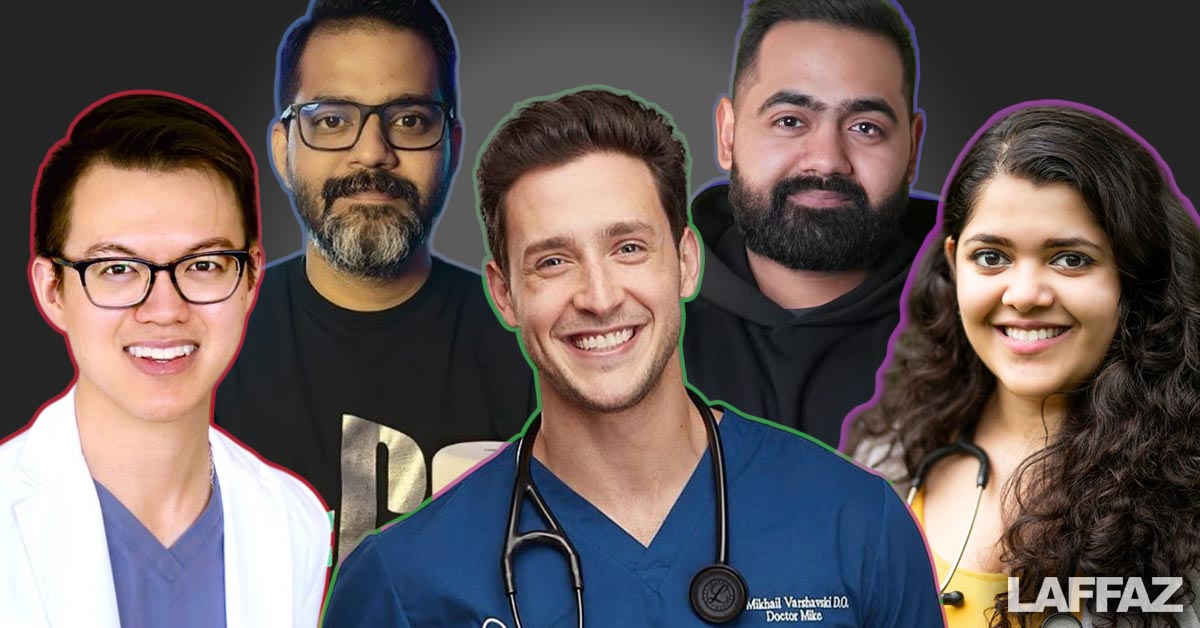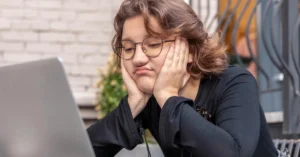In the past, doctors were seen almost exclusively in white coats, confined to clinics and hospitals. Today, a new wave of medical professionals has taken to Instagram, YouTube, and TikTok, reaching millions in spaces once dominated by celebrities and lifestyle influencers. Popularly termed as “docfluencers”, these medical voices are reshaping how the public consumes health information.
From debunking myths to battling misinformation, docfluencers are playing a crucial role in modern society. And while the movement has seen some of its strongest growth in India, the United States, and the United Kingdom, its impact is increasingly global.
The Emergence of Docfluencers
The COVID-19 pandemic created a turning point for digital health communication. As misinformation spread faster than the virus itself, doctors took to social media to set the record straight. Dr. Mikhail Varshavski, Soviet-born American family medicine physician, better known as Doctor Mike, became a household name during the pandemic, breaking down complex medical information into bite-sized, engaging videos for his over 23 million subscribers across YouTube, Instagram, and TikTok. In the UK, Dr. Karan Rajan, an NHS surgeon with over 5 million TikTok followers, gained popularity with myth-busting content on everyday health issues.
India too saw an explosion of medical voices on social media. The popular Dr. Cyriac Abby Philips, popularly known as The Liver Doc, who uses X (formerly Twitter) and Instagram to debunk pseudoscience. “I want to fight misinformation, pseudoscience and quackery, and promote rational, evidence-based medicine to the public,” says Philips in a statement to The Week.
Fighting Misinformation: The Liver Doc vs. Nikhil Kamath
Perhaps one of the most high-profile examples of a docfluencer challenging public messaging came in mid-2024, when Zerodha co-founder Nikhil Kamath made headlines when he said “alcohol is a good business“ during his podcast ‘WTF with Nikhil Kamath‘ episode named ‘WTF, Alcohol is a $70B Business in India?‘ – highlighting its profitability and economic potential as an industry. While Kamath’s intent was to emphasize the sector’s business opportunity rather than promote consumption, his comment quickly drew attention and controversy on social media.
Dr. Abby Philips immediately pushed back. As a hepatologist, he has spent years warning the public about the risks of alcohol consumption, particularly in a country like India where liver disease is a major health burden. He signified that there is absolutely no amount of alcohol that is safe, and statements like these from people of influence are dangerous and misleading,
“…But when these businessmen, start glorifying their business of alcohol by equating it to ‘good healthcare intervention,’ it goes definitely into the realm of health misinformation, which is why, I have to keep discussing this absolutely garbage myth that ‘alcohol in moderation is good for you’ and the absolute nonsense disclaimer to support that myth, which they call ‘drink responsibly’,”
Dr. Philips continued. “To claim drinking alcohol in moderation is good, is actually a crime.” said Dr. Philips
His rebuttal reframed the conversation, stressing that business success stories should never eclipse the serious health risks tied to a product. The exchange sparked a nationwide debate, amplified by major media outlets including Hindustan Times, Indian Express, Business Standard, NDTV, and Deccan Chronicle. While some defended Kamath’s right to discuss market opportunities, many agreed with Dr. Philips that influential entrepreneurs must exercise caution in how they phrase such observations, especially on sensitive topics like alcohol.
This episode illustrated the growing role of docfluencers as real-time fact-checkers and advocates for public health. By countering narratives that could normalize risky behavior, docfluencers like Dr. Philips not only protect individuals but also hold powerful voices accountable. It underscored how digital medical influencers safeguard society in ways that traditional healthcare institutions, often slower to respond, struggle to achieve.
Docfluencers in India, US & UK: A Global Movement
In the United States, the docfluencer trend has been especially powerful on TikTok. Platforms once filled with dance challenges now feature licensed physicians answering questions about anxiety, birth control, or the latest viral diet. A Glamour report noted that women, in particular, are turning to medical influencers for quick, digestible health advice.
Doctor Mike exemplifies the potential of combining medical credibility with online charisma. He told Business Insider in 2022, “I see myself as a translator. My job is to make medicine understandable and accessible without compromising the science.”
Beyond Doctor Mike, specialists like Dr. Austin Chiang, a gastroenterologist and chief medical officer at Medtronic, have become influential advocates for responsible digital health communication. Dr. Chiang, who founded the Association for Healthcare Social Media, has said, “If we don’t have qualified voices online, misinformation will fill the gap.”
In the UK, NHS professionals like Dr. Karan Rajan and Dr. Idrees Mughal (better known as Dr. Idz) use humor and storytelling to dismantle dangerous fads—whether it’s anti-vax rhetoric or diets like “dry fasting.” The NHS itself has experimented with TikTok campaigns to reach young audiences with credible health messaging. The American Medical Association (AMA) has also acknowledged the importance of medical professionals engaging online, urging doctors to counter misinformation proactively.
These examples reflect a broader societal need: trustworthy experts who can cut through noise.
Why Docfluencers Matter to Society
- Accessibility of Information: Medical jargon is often difficult for the average person to understand. Docfluencers bridge this gap, making health information accessible in seconds.
- Combating Health Misinformation: From anti-vaccine conspiracy theories to miracle cures, misinformation thrives online. Docfluencers actively counter these falsehoods in real-time.
- Mental Health Advocacy: Psychiatrists and psychologists on platforms like Instagram normalize conversations around anxiety, depression, and burnout, especially critical in post-pandemic times.
- Cultural Influence: Unlike official advisories, a doctor’s TikTok or Instagram reel often reaches young audiences who might never read a medical journal or government health warning.
Challenges and Criticisms
Despite their positive impact, docfluencers also face challenges. Critics argue that blending entertainment with medicine risks oversimplification. As one UK doctor anonymously told The Guardian, “The danger lies in reducing nuanced medical issues into 30-second sound bites.”
There’s also the question of credibility. Not all who call themselves docfluencers are licensed professionals, and distinguishing authentic voices from self-styled “experts” can be difficult for audiences.
Moreover, the pressure of virality can push even genuine doctors toward sensationalism. The delicate balance between engagement and accuracy remains a constant struggle.
The Future of Docfluencers
Looking ahead, the role of docfluencers is only set to grow. Brands and health institutions are beginning to collaborate with them, realizing their potential to influence public behavior. The World Health Organization (WHO), for instance, has engaged influencers during vaccination drives.
In India, where misinformation about traditional medicine often goes unchecked, docfluencers like The Liver Doc, Dr. Tanaya Narendra (known as Dr. Cuterus), and Dr. Siddhant Bhargava are changing conversations around sexual health, reproductive health, and nutrition.
In the US and UK, the docfluencer trend is evolving toward professional collaborations with universities, hospitals, and even government agencies. The NHS’s TikTok initiatives and the AMA’s calls for digital engagement suggest an institutional embrace of this movement. This integration could help ensure that public health messaging remains both accurate and relatable.
Conclusion
The rise of docfluencers underscores a fundamental shift in how society consumes information. Doctors are no longer just behind clinic doors, they’re on our Instagram feeds, YouTube recommendations, and TikTok For You Pages. Whether they’re busting myths about alcohol, clarifying vaccine safety, or talking openly about mental health, docfluencers are performing a public service.
“By countering misinformation with accurate, evidence-based information, I aim to protect public health at all costs, promote scientific literacy among patient community and public and support healthcare professionals to provide effective care as well as stand for science.” Dr. Abby Philips said in an interview with The Indian Express
And in a world where misinformation can go viral faster than any disease, society needs docfluencers more than ever.






